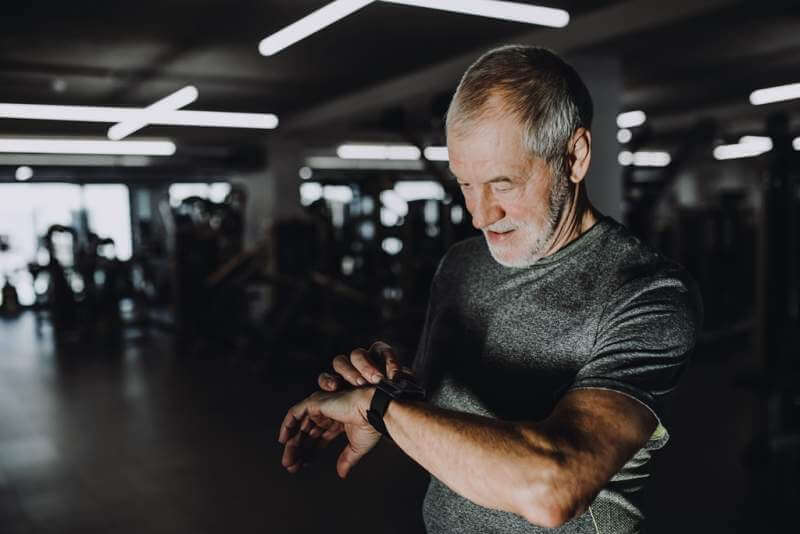Everyone knows that exercise is important, yet we often don’t do it enough. The Department of Health and Human Services recommends adults to get 150 minutes of moderate or 75 minutes of rigorous aerobic exercise and two days’ worth of strength-training exercise per week. Why is it so difficult for us to meet these guidelines? There are barriers that prevent us from exercising in the first place. Let’s review these obstacles and how you can overcome them so working out becomes a part of your daily life.
I Don’t Have Enough Time
 Many people feel as if they don’t have enough time to exercise. Let’s face it. Our lives always seem to get busier. However, if it is a priority in your life, you will find the time to fit exercise into your schedule, no matter how busy you are. Some ideas are:
Many people feel as if they don’t have enough time to exercise. Let’s face it. Our lives always seem to get busier. However, if it is a priority in your life, you will find the time to fit exercise into your schedule, no matter how busy you are. Some ideas are:
- Schedule It In – Putting an exercise routine on your calendar will help you to remember to do it. You can do it before breakfast, on your lunch break, when you get home from work, or at another time that works for you.
- Fit In Small Chunks – Who says a workout has to be lengthy? You can fit five-minute-exercises into your daily schedule as time permits.
- During Your Work Day – If you have a half hour lunch, you can walk for 15 minutes and then eat for 15 minutes. If your lunch is an hour, you may be able to get a 45-minute walk in.Checking your phone can wait for the end of the day.
- Increase Your Steps – There are many ways you can get more steps into your day. You can park farther away when shopping. You can use the stairs instead of the elevator. You can walk to get some errands done instead of drive. You can even walk around while talking on the phone. Increasing your step count doesn’t have to be complicated.
- Add Exercise to Your Routine – Consider what you can change in your routine to make more time. Do you always fit in a half hour of TV with your spouse at the end of the night? Try fitting in a workout instead. Don’t have time in the evening? Consider adding physical activity to your weekend like taking an exercise class, walking, or hiking.
Exercise Is Boring
 One of the greatest things about exercise is how diverse it is! Walking, jogging, bicycling, swimming, weight training, dancing, Pilates, and rock climbing are just some of the choices you have. You could do a different exercise each day of the week and never get bored! If exercise is boring for you, try a new type of class or instructor. You can take a class in person or online.
One of the greatest things about exercise is how diverse it is! Walking, jogging, bicycling, swimming, weight training, dancing, Pilates, and rock climbing are just some of the choices you have. You could do a different exercise each day of the week and never get bored! If exercise is boring for you, try a new type of class or instructor. You can take a class in person or online.
Keep trying new exercises until you find something that sticks. Try to not give up too easily. Your body may take months to get used to and learn to enjoy an exercise. To add some excitement to your workouts, try making a fun playlist to listen to when you work out. Rocking out to your favorite songs makes working out much more enjoyable.
Exercise Is Hard
 There is nothing more detrimental to working out than feeling like it’s too hard. When you do an activity that is too advanced for your fitness level, you are sure to feel discouraged. All exercises have beginner, intermediate, and advanced levels that you can progress to. If you feel something is way too tough, you are probably working at a level too hard for where your body is at right now. Here are some suggestions to make your workouts less painful:
There is nothing more detrimental to working out than feeling like it’s too hard. When you do an activity that is too advanced for your fitness level, you are sure to feel discouraged. All exercises have beginner, intermediate, and advanced levels that you can progress to. If you feel something is way too tough, you are probably working at a level too hard for where your body is at right now. Here are some suggestions to make your workouts less painful:
- Begin Slowly – If you want to become a runner, begin with walking every day. Once you work up to that, increase the amount of time you walk. Then set a timer and jog for a minute, then walk for five. Repeat that sequence until your workout is complete. Gradually increase the jog and decrease the walk, and you will find yourself running in no time!
- Ease Up – Cut back on the intensity—the speed—of the workout. You may also choose beginner workouts or classes that are shorter lengths of time.
- Incorporate Breaks – Rest as needed in between exercises, take a drink of water, and catch your breath. Over time, your strength and endurance will develop, and you will be able to sustain the workout longer.
And it’s important to remember that once an exercise becomes manageable for your body, you will find that you want to do it more.
I Don’t Have a Workout Partner
 So many people only go to the gym because their friends do. When their friends stop going, so do they. This is not a good habit to get into. You need to be able to muster the confidence, energy, and willpower to workout regardless of whether you have someone to do it with. Your health depends on it! Going to a class is a great motivator for someone who does not like working out alone. There are so many classes to try, so you are likely to find something that you like. If you prefer going outside, you can join a local running program to help you go from couch potato to 5k-ready, such as First Strides. You can search for running and walking groups near you. Whether you join a class or a walking group, you will always be working out with other people to keep you motivated.
So many people only go to the gym because their friends do. When their friends stop going, so do they. This is not a good habit to get into. You need to be able to muster the confidence, energy, and willpower to workout regardless of whether you have someone to do it with. Your health depends on it! Going to a class is a great motivator for someone who does not like working out alone. There are so many classes to try, so you are likely to find something that you like. If you prefer going outside, you can join a local running program to help you go from couch potato to 5k-ready, such as First Strides. You can search for running and walking groups near you. Whether you join a class or a walking group, you will always be working out with other people to keep you motivated.
I’m Not as Good As …
 Comparing yourself to others is not going to help you succeed with working out. It’s not fair to compare yourself to others who are different from you. Some people may lead a fitter lifestyle or be better adept at a particular workout through years of practice. Don’t compare! Instead, focus on making personal accomplishments and seeing them to fruition. How can you become stronger, faster, or fitter? You may want to consider making SMART goals for yourself. Making realistic goals based on your current fitness level helps you progress to a higher fitness level.
Comparing yourself to others is not going to help you succeed with working out. It’s not fair to compare yourself to others who are different from you. Some people may lead a fitter lifestyle or be better adept at a particular workout through years of practice. Don’t compare! Instead, focus on making personal accomplishments and seeing them to fruition. How can you become stronger, faster, or fitter? You may want to consider making SMART goals for yourself. Making realistic goals based on your current fitness level helps you progress to a higher fitness level.
Accomplishing your first fitness goal is the first step to regain your confidence with working out. Over time, you will develop the ability to make working out a way of life.
Author Bio:
Dr. Michael Donaldson is a chemical engineering graduate of Cornell University and now Research Director of the Hallelujah Diet. He has spent the last 18 years studying people who have experienced health benefits through diet and published scientific research on its benefits for fighting fibromyalgia, cancer, diabetes, and other ailments. His work consists of designing and coordinating epidemiologic and clinical intervention studies based on specific symptoms or diseases and focuses on the results of the Hallelujah Diet.
